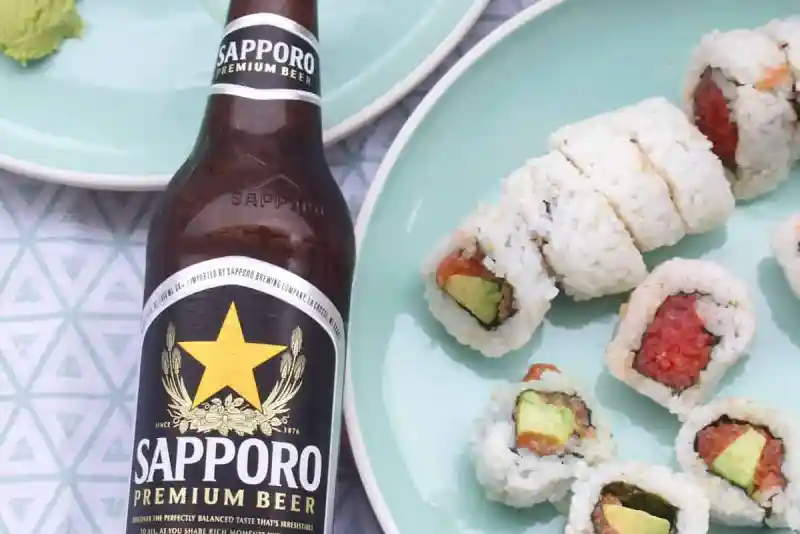Japanese food and beer are a perfect pair for many people. Beer is a popular alcoholic beverage in Japan and is commonly served with meals. It has become part of their culinary culture to enjoy a beer with a lot of Japanese dishes. Beer has a lot of characteristics that can enhance or complement well with the flavors of Japanese cuisine.
Here, we’ll discuss what type of beer can go well with your favorite Japanese food. We’ll look into the different characteristics of each beer and how it can enhance your Japanese food culinary adventure.
Table of Contents
ToggleWhat Types of Beers Are Better for a Japanese Food?
It’s important to take into account that Japanese cuisine offers delicate flavors and a wide variety of dishes when choosing what beer to pair with them. Here are some beers that usually go well with Japanese food:
1. Sapporo Premium Beer
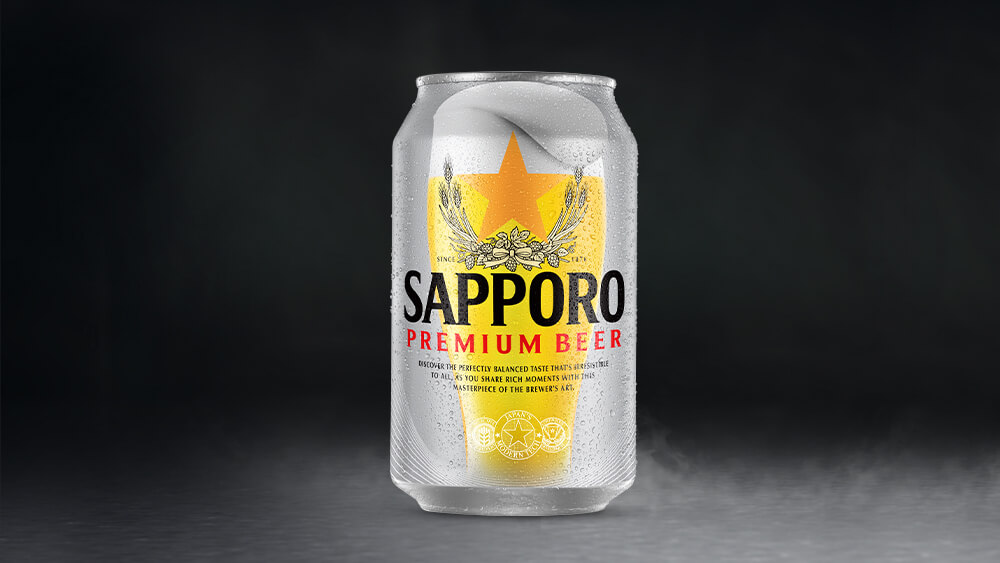
This is a well-known Japanese rice lager that pairs nicely with Japanese cuisine. It has a clean and crisp profile that complements the flavors of various Japanese dishes, including sushi, sashimi, tempura, and lighter seafood dishes.
A natural choice for pairing with Japanese dishes, this kind of beer is brewed with rice.
2. Ommegang Hennepin
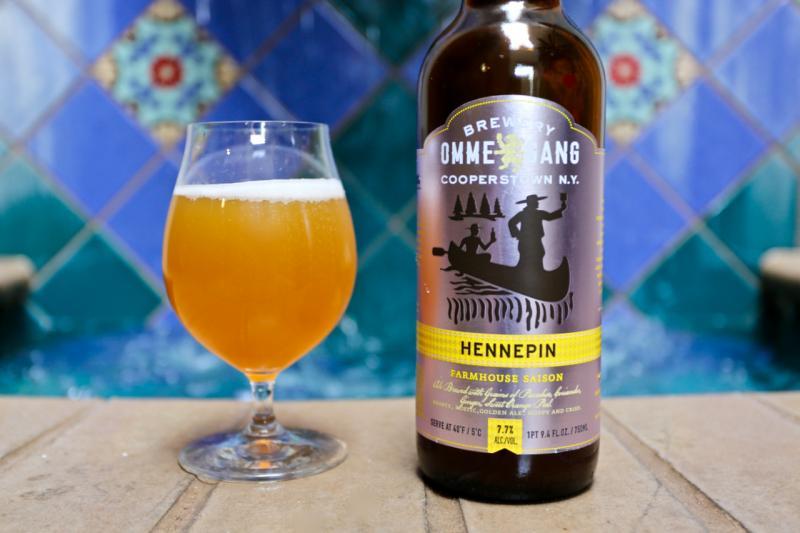
This brand is a well-regarded American saison that could go well with Japanese food. It can complement the flavors of Japanese cuisine because of its spicy and fruity notes with a refreshing character.
This farmhouse ale can go nicely with Japanese cuisines that have a slightly aromatic or spicy quality, such as yakitori (grilled chicken skewers) or dishes with ginger and soy-based sauces.
3. Blue Moon Belgian White
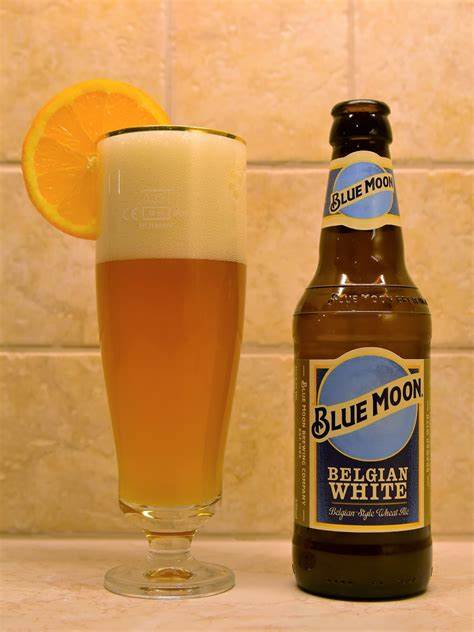
This popular American wheat beer has citrusy and slightly spicy flavors that can complement a variety of Japanese dishes.
Wheat beers like this brand are refreshing. They usually have a slightly cloudy appearance and frequently feature aromas of banana and clove. Wheat beers’ pleasant malt sweetness can enhance the flavors of Japanese dishes. They can be a good match for Japanese dishes like vegetarian tempura or dishes with subtle citrus flavors.
4. Firestone Walker Pivo Pils
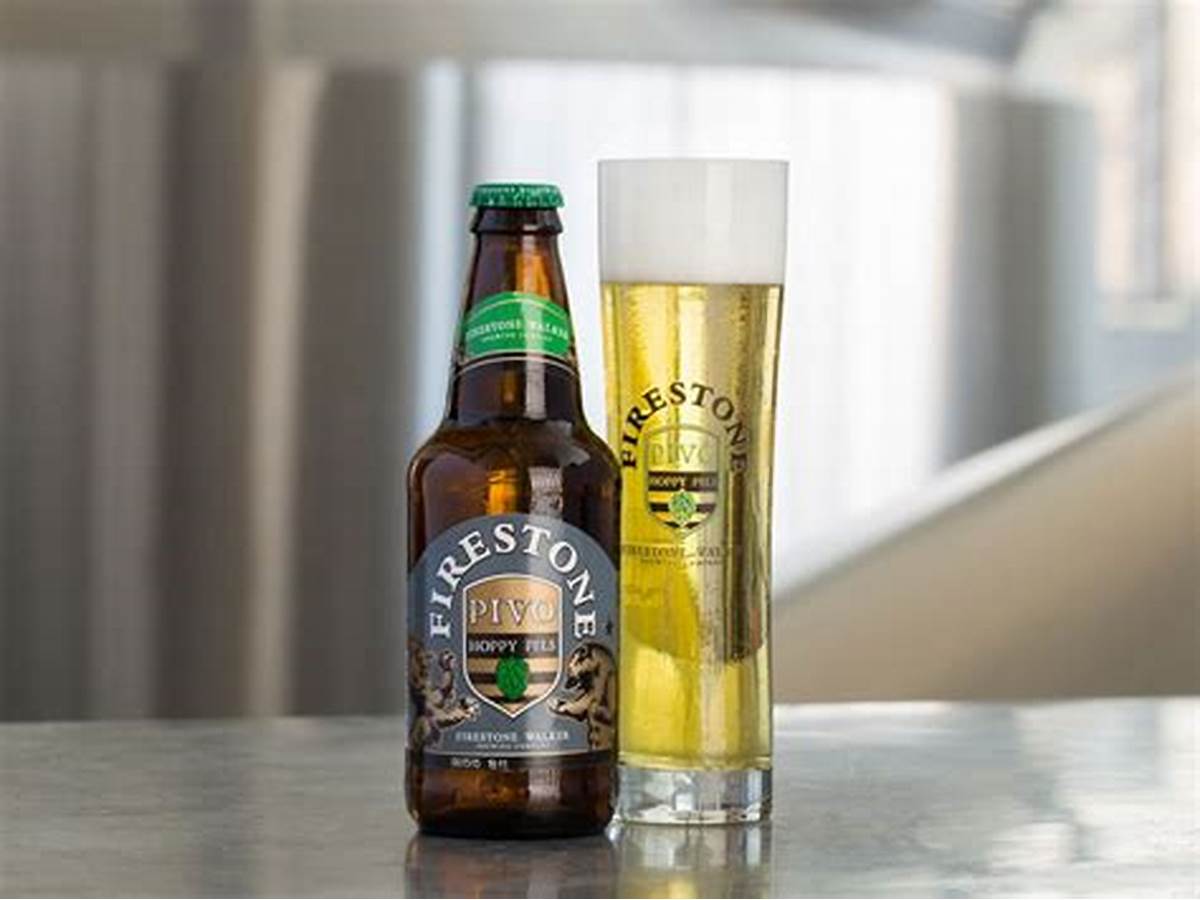
This specific American pilsner brand could make a great pairing with Japanese food. Its crisp and hoppy profile can go well with the clean and delicate flavors of Japanese cuisine.
Pilsners have slight hop bitterness and a clean and crisp taste. They complement well with many Japanese dishes, particularly those with soy sauce-based flavors, like soy-glazed dishes or teriyaki.
5. Stone IPA
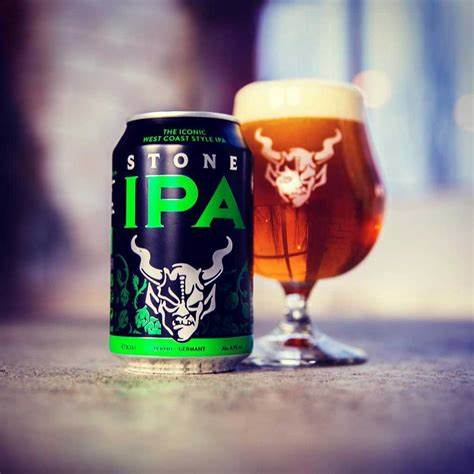
This American IPA brand can be a good choice to enjoy with Japanese food. It can complement the flavors of various Japanese dishes because of Its hoppy and citrusy flavors.
IPA’s hop bitterness and fruity notes can balance the overall taste of dishes with bold and spicy flavors like ramen or those with strong umami elements.
6. Hitachino Nest

A popular Japanese craft beer brand often enjoyed alongside Japanese food, the balanced flavor of their range of beers, such as White Ale and Red Rice Ale, can pair nicely with a lot of Japanese dishes. Trying out local craft beers can be a delightful experience. Japan’s growing craft beer scene offers different brews to choose from that are specifically made to pair well with their local cuisine.
7. Kirin Ichiban
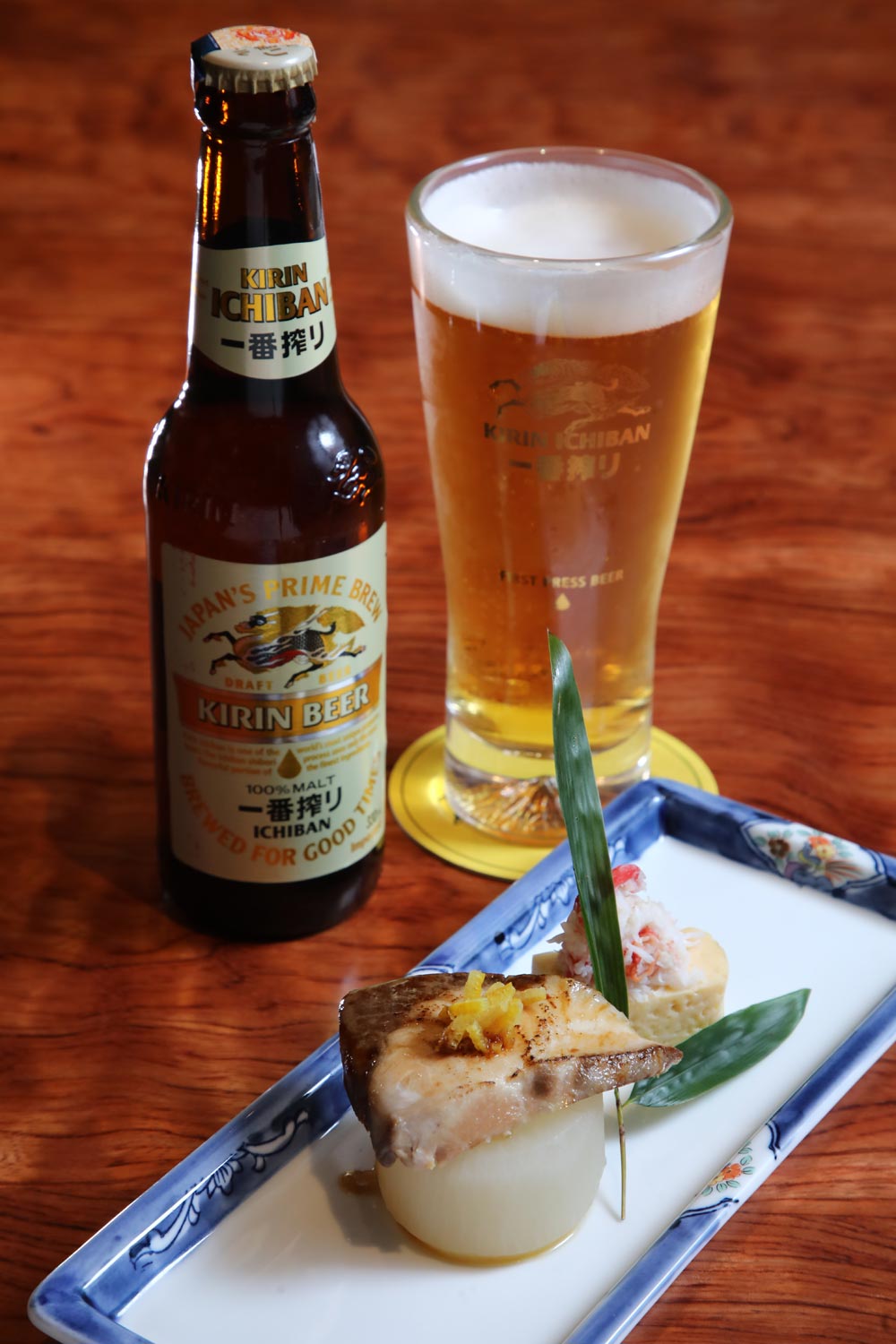
This Japanese light lager brand has a clean and crisp taste that complements the delicate flavors of Japanese cuisine, making it a perfect pairing with Japanese food.
Light lager also has low hop bitterness, a mild and neutral profile that can help balance and not overpower the savory umami taste in the dishes. This makes lagers a versatile choice for pairing with many Japanese dishes, including sushi, sashimi, and even Japanese salads.
8. Hitachino Nest Anbai Ale
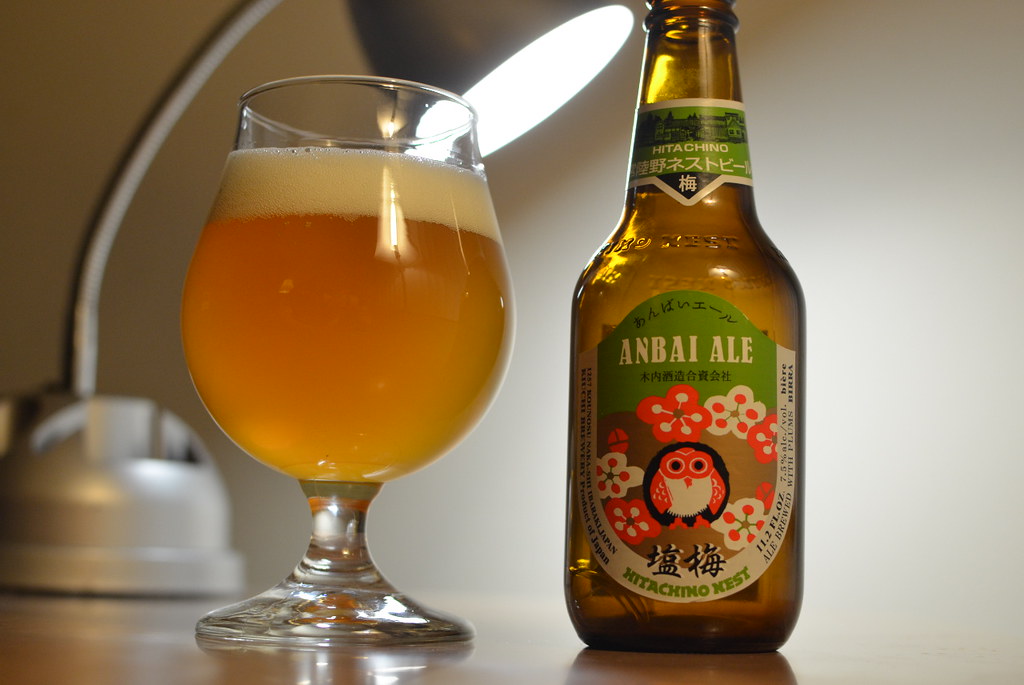
This brand is a Japanese craft beer that features plum flavors and is a good pairing with Japanese food. It’s a unique option to enjoy with Japanese dishes because of its subtle plum tartness.
Some breweries make beers infused with Japanese fruits like yuzu or plum. These slightly tart and fruity beers can complement dishes with citrusy or sweet elements.
What Beers to Avoid for Japanese Food?
There are also some beer styles that are not well suited for pairing with Japanese food because of their strong flavors or characteristics. Here are some of the beers that you may want to avoid when eating Japanese food:
1. Founders KBS
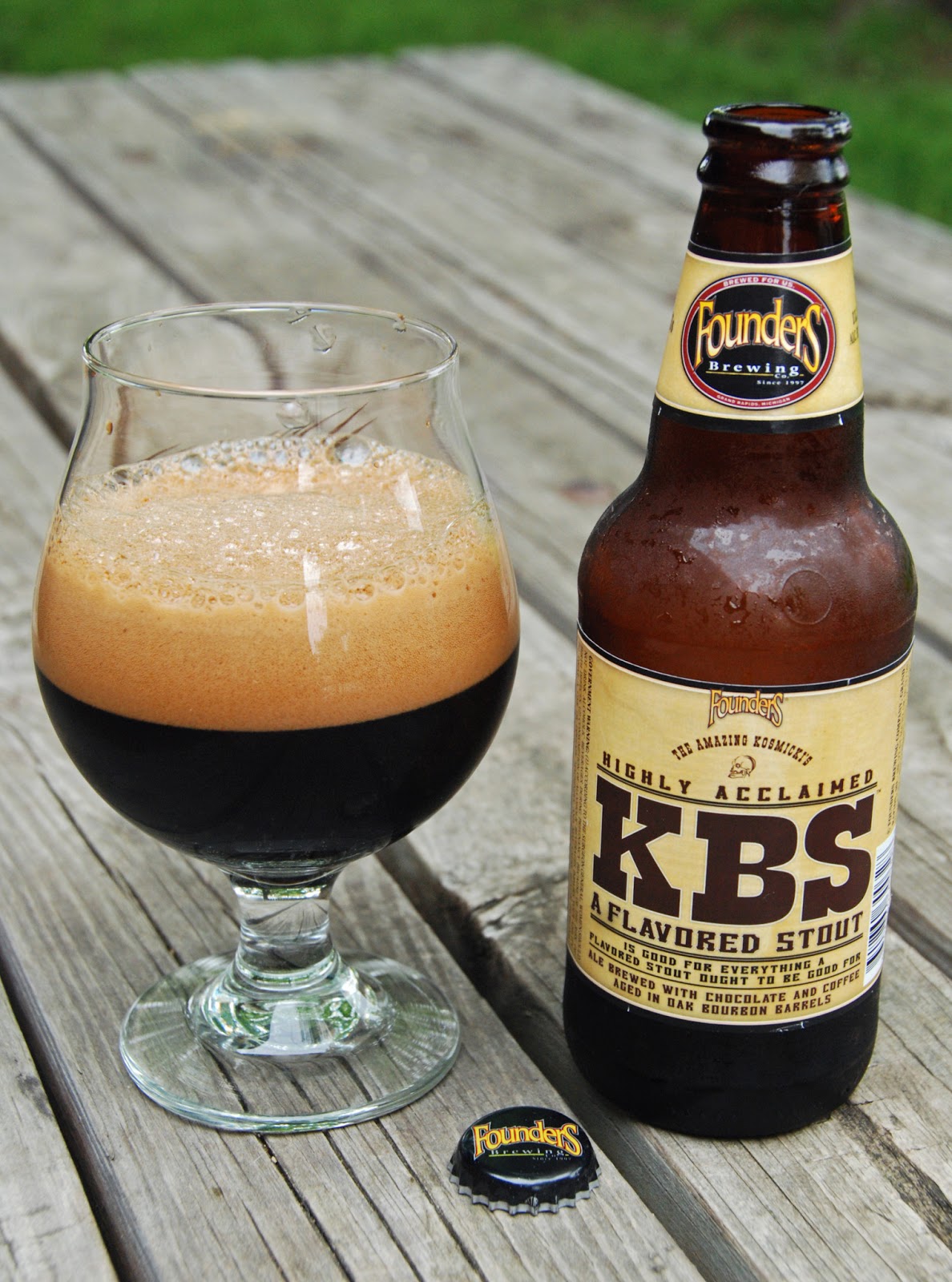
An imperial stout like this brand has an intense roasted and chocolatey flavor that can overwhelm the clean and delicate flavors of Japanese dishes.
These kinds of beers usually have high alcohol content and strong flavors like chocolate, coffee, and dark fruits. They can be overwhelming and may not go well with the subtle flavors of Japanese dishes.
2. Sierra Nevada Bigfoot
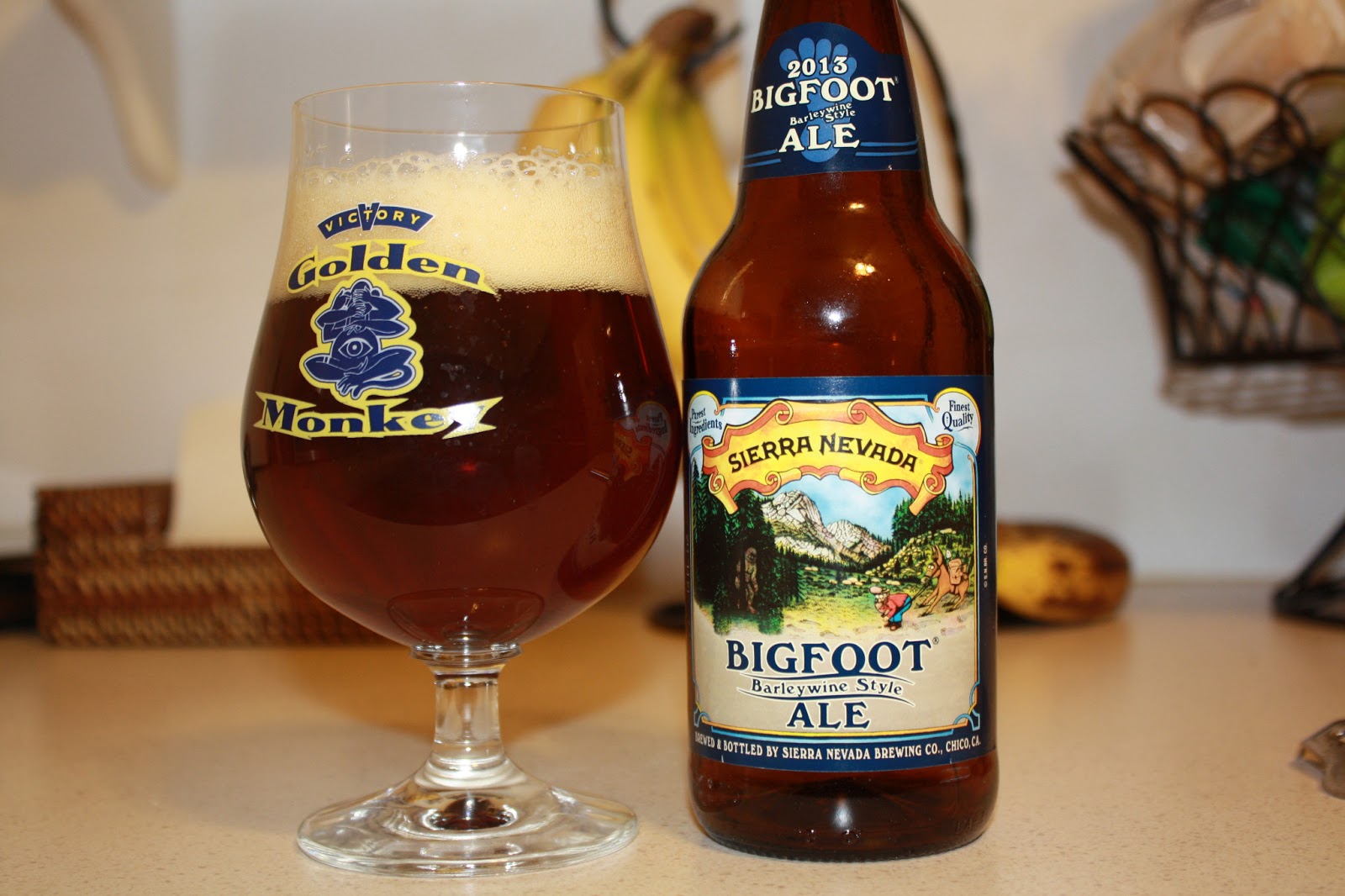
This brand of barleywine has strong maltiness and high alcohol content that can overwhelm the flavors of Japanese dishes.
Barleywines like this brand have high alcohol content and are rich, malt-forward kinds of beers. The strong caramel and toffee notes may overpower the delicate flavors of Japanese cuisine.
3. Dogfish Head 90 Minute IPA
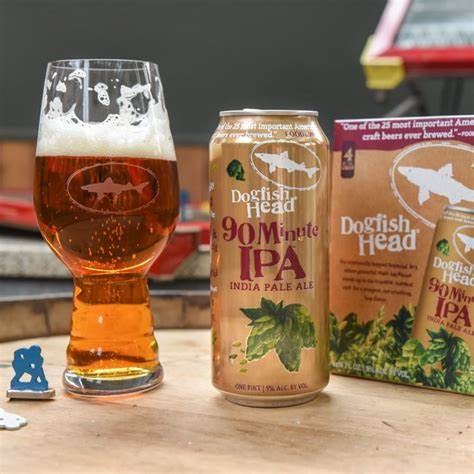
This IPA brand has a high hop bitterness and intense flavor that can clash with the taste of many Japanese dishes.
Extremely hoppy India Pale Ales (IPAs) with intense bitterness may not go well with the subtle flavors in many Japanese cuisines, especially those with soy sauce or delicate seafood.
4. Avery Brewing Co. Uncle Jacob’s Stout
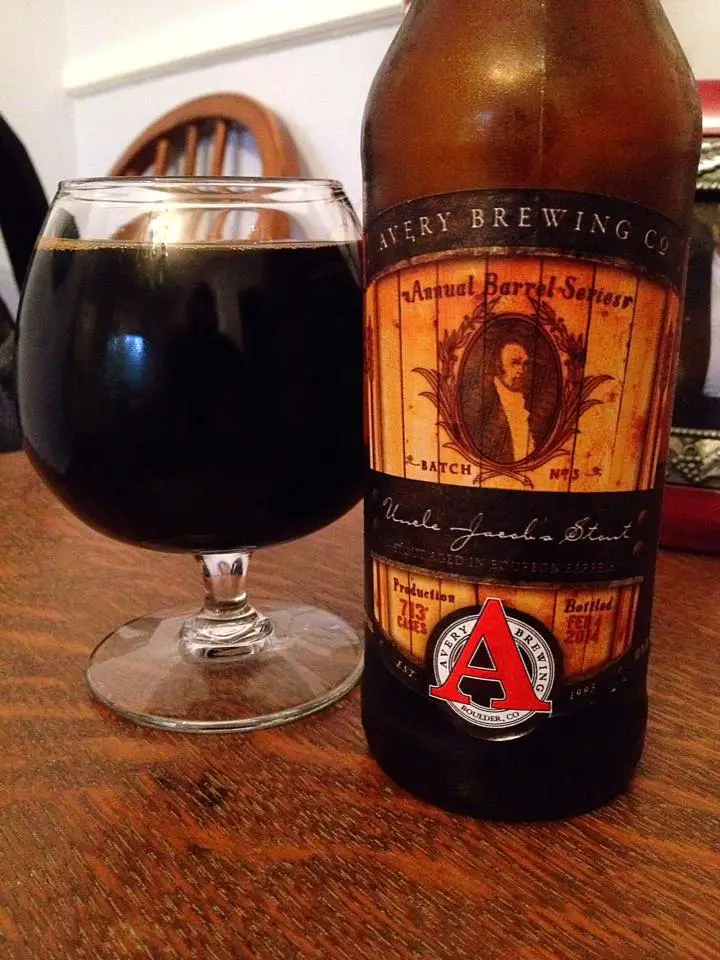
This beer with astringent qualities can create a drying sensation on the palate, potentially conflicting with the flavors of Japanese food.
Umami-rich flavors in Japanese food may not be a good pair with beers that have a heavy emphasis on bitterness or astringency because this could lead to an unbalanced pairing.
5. Alaskan Smoked Porter

This smoked beer has strong smoky flavors that can overpower the delicate and clean flavors of many Japanese dishes.
The strong smoky flavor of smoked beer may go well with certain dishes but is not a good blend with the delicate and fresh flavors of most Japanese dishes.
6. Samuel Adama Merrymaker Gingerbread Stout
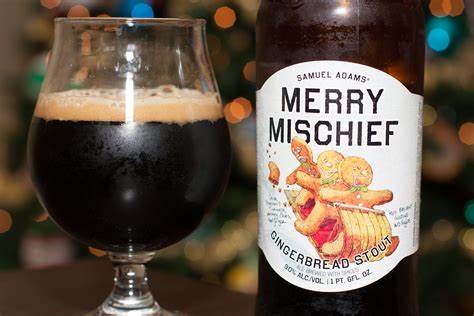
This brand of heavily spiced beer has strong spiced flavors that can’t go well with Japanese food.
The strong fruit flavors or intense spices in this kind of beer may not pair harmoniously with the more subtle and traditional taste of Japanese cuisine.
7. Cascade Brewing Kriek

A sour beer like this brand will conflict with the flavors of Japanese dishes because of its tartness and acidity.
Sour beer’s acidity can clash with the flavors of Japanese food, especially with dishes that have a delicate and balanced taste.
FAQs About Best Beers for Japanese Food
What specific Japanese food goes well with beer?
Japanese have what they call “otsumami.” This is the Japanese version of “finger foods” which is usually served with alcoholic beverages. Different kinds of “otsunami” goes well with beer, like Karaage, which are deep-fried, flour-coated pieces of meat. Another is Edamame, which are soybeans boiled with salt water or just plain water and salted afterward. Gyoza is also a popular pair with beer because of its salty and savory flavor. Yakitori, assorted tempura, yakisoba, and Ararre rice crackers are also good pairing with beer.
Are there any beer etiquette tips to keep in mind?
There are some general beer etiquette tips to consider when you are in Japan. First is that you have to pour beer for others before pouring your own as to show politeness. Second is that you have to hold the beer glass with both hands when someone pours it for you as a gesture of gratitude. And lastly is to avoid crossing arms with others when clinking glasses in toast because it is considered as impolite.
Wrapping Up the Best Beers for Japanese Food
We listed down the different types of beer that can go well with Japanese food and discussed what characteristics of beer may overpower the taste of the food that we are eating with it. These are just suggestions, and everyone’s taste preferences are different, so don’t be afraid to explore and experiment to find out which combination will best suit your taste. Enjoy your culinary journey with beer and Japanese food! Kanpai!

I am a passionate beer connoisseur with a deep appreciation for the art and science of brewing. With years of experience tasting and evaluating various beers, I love to share my opinions and insights with others and I am always eager to engage in lively discussions about my favorite beverage.

